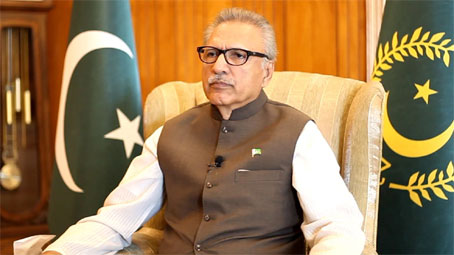According to the amended finance bill, there will be no tax on an annual income of Rs0.6 million, whereas the annual income of Rs0.6 to 1.2 million will be taxed at 2.5 percent of the amount exceeding Rs0.6 million.
Those earning Rs1.2 million to Rs2.4 million will have to pay a fixed tax of Rs15,000 plus 12.5 percent of the amount exceeding Rs1.2 million. Where taxable income exceeds Rs2.4 million but does not exceed Rs3.6 million the tax rate is Rs165,000 plus 20 percent of the amount exceeding Rs2.4 million.
Those earning between Rs3.6 million to Rs6 million will have to pay Rs405,000 plus 25 percent of the amount exceeding Rs3.6 million.
For income between Rs6 million to Rs12 million, the tax will be Rs10.05 million plus 32.5 percent of the amount exceeding Rs6 million.
Where taxable income exceeds Rs12 million, the tax is Rs2.955 million plus 35 percent of the amount exceeding Rs12 million.
Moreover, the government has imposed a 10 percent ‘super tax’ for sectors including airlines, automobiles, beverages, cement, chemicals, cigarette and tobacco, fertilizer, iron and steel, LNG terminal, oil marketing, oil refining, petroleum and gas exploration and production, pharmaceuticals, sugar and textiles.
On the other hand, the rate of super tax will be 10 percent for tax year 2023 on banking companies earning income exceeding Rs300 million.
Meanwhile, there will be 1 percent tax on high earning persons where income exceeds Rs150 million but does not exceed Rs200. Similarly, there will be a 2 percent tax on income where income exceeds Rs200 million but does not exceed Rs250.
Meanwhile, there will be a 3 percent tax on income where income exceeds Rs250 million but does not exceed Rs300 and 4 percent tax on income where income exceeds Rs300 million.
The NA had also passed an amendment in the Finance Bill to approve Rs50 per litre petroleum development levy on all POL products.
The session of the lower house of the parliament continued clause-wise approval of the finance bill. The house passed the finance bill 2022-23 presented by Minister of State for Finance Ayesha Ghous Pasha in its session today.
All budget proposals from the opposition members were rejected with majority vote.
Finance Minister Miftah Ismail told the house that 50 rupees per litre will not be imposed in one go. “Presently their is zero petroleum levy,” he explained. The levy will be gradually increased by Rs5 per month to reach a maximum of Rs50, approved by the house.

























Please correct the figures in tax bracket for 6 to 12 mils.